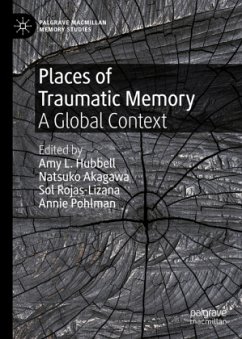
Agonistic Memory and the Legacy of 20th Century Wars in Europe

PAYBACK Punkte
53 °P sammeln!
This book discusses the merits of the theory of agonistic memory in relation to the memory of war. After explaining the theory in detail it provides two case studies, one on war museums in contemporary Europe and one on mass graves exhumations, which both focus on analyzing to what extent these memory sites produce different regimes of memory. Furthermore, the book provides insights into the making of an agonistic exhibition at the Ruhr Museum in Essen, Germany. It also analyses audience reaction to a theatre play scripted and performed by the Spanish theatre company Micomicion that was suppos...
This book discusses the merits of the theory of agonistic memory in relation to the memory of war. After explaining the theory in detail it provides two case studies, one on war museums in contemporary Europe and one on mass graves exhumations, which both focus on analyzing to what extent these memory sites produce different regimes of memory. Furthermore, the book provides insights into the making of an agonistic exhibition at the Ruhr Museum in Essen, Germany. It also analyses audience reaction to a theatre play scripted and performed by the Spanish theatre company Micomicion that was supposed to put agonism on stage. There is also an analysis of a Massive Open Online Course (MOOC) designed and delivered on the theory of agonistic memory and its impact on the memory of war. Finally, the book provides a personal review of the history, problems and accomplishments of the theory of agonistic memory by the two editors of the volume.














